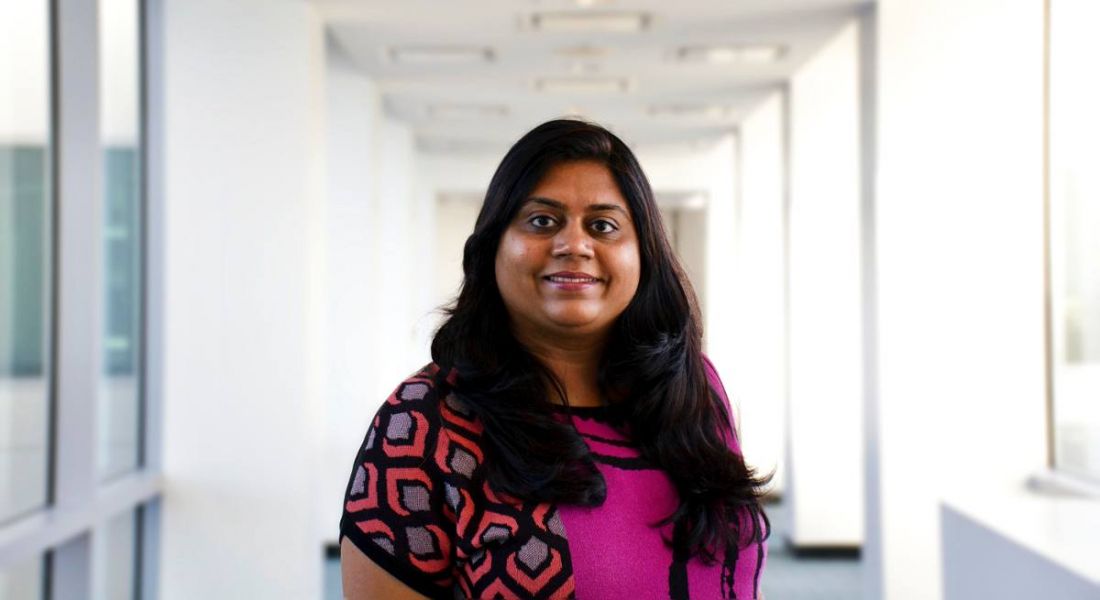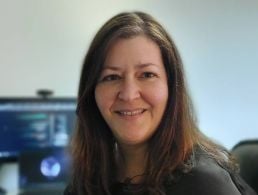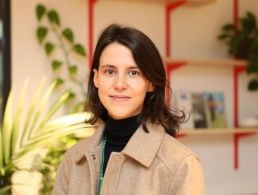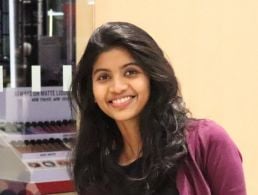The app economy is verifiably huge. Android and iOS stores are populated with thousands of apps. But how can you become part of it? How can you become an app developer?
Here, Snehal Patil, a mobile instrumentation engineer at Yahoo, talks us through her path to mobile development and offers some advice for those interested in following in her footsteps.
What first stirred your interest in a career in this area?
The first time I saw the iPhone in 2007, I was fascinated by it. I was looking to change my career, and I found this new tool to play with. I was very excited by the possibilities of what could be done with it, and I decided to learn iOS development and develop some cool apps.
Fortunately, while I was finishing my master’s in computer science at Indiana University, I got the opportunity to work on an iPhone app in a CNET research lab, and to be a teacher’s assistant for an iPhone programming class. It gave me exposure to mobile programming, which helped me to secure a full-time position at OpenTable in San Francisco as their first ever iOS developer.
What steps led you to the role you now have?
I am a self-taught mobile developer.
We did not have any classes during my time that taught iOS programming. I believe they were only at Stanford University, where a few Apple engineers taught iOS programming classes.
Those lectures were made available on iTunes. I started watching them and learned iOS programming on my own. I read many books and Apple documentations, and followed online tutorials to keep myself updated with the new releases of iOS.
I still watch WWDC videos to learn about new iOS frameworks and libraries. I also organise and attend iOS meetups to learn and network with other iOS developers.
What were the biggest surprises or challenges you encountered on your career path?
Before I started working with iOS, I was working in mainframes, which was a very old technology. Changing my career path from mainframe to mobile was very difficult. I had to learn an entire new technology on my own.
I was also transitioning during that time from India to the United States for my master’s. Going back to school after five years of working in the industry helped me give myself a chance to think again about what I wanted to do. It gave me new avenues and new opportunities.
Keeping myself updated with cutting-edge technology, frameworks and tools has been a challenging part of being in mobile development (or even software development). Every year, there are new operating systems and frameworks that are released, and I have to quickly understand those and think which can be applied to my application.
Making an impact as a woman engineer was a challenge too. I established the Women Who Code (WWCode) network in Silicon Valley to work with similar-minded women and men to solve problems, such as bias.
Was there any one person who was particularly influential as your career developed?
Not one person, but there are many people who helped me along the way.
I was inspired to become an engineer by my family, as most of them are engineers too. However, my story was different from them, as I was the only computer engineer and no one from my family had gone out of India for studies.
Hence, even though initially I was inspired by my father to pursue engineering, I was helped a lot by many friends, classmates and colleagues in the later part of my journey.
Being in Silicon Valley, everyone around you serves as an inspiration to pursue your dreams. Every person will have a unique story and background. It’s just fascinating to talk to people here and learn from their experiences.
Formal mentorship is very important, but I think it’s an overrated concept, too. Sometimes, a colleague can give you simple and great advice when you need it most, without you waiting a long time to meet your mentor.
I would suggest having great friends who can serve as mentors, and do not hesitate to reach out to anyone if you need help. If you do not have any friends who are experts in the area where you want advice, I suggest going to meetups and spending time with people there, as you may end up making some good friends.
I am also inspired by Sri Sri Ravi Shankar, who is a humanitarian leader, spiritual teacher and ambassador of peace. His vision of a stress-free, violence-free society has united millions of people around the world through service projects and the courses of The Art of Living.
I am constantly inspired by his extraordinary work to bring a smile to everyone’s face. I have gained many pearls of wisdom being with him, which I apply in my personal and professional life. It has helped me achieve my goals effortlessly.
What do you enjoy about your job?
I am working in mobile technologies at Yahoo, and writing applications for mobile, as well as for watchOS and tvOS. It feels great to work on the latest trends in technology and applications that have a large user base – I feel very satisfied when my family and friends use the products that we develop. I am constantly challenged to learn new things and make applications that are robust, optimised and perform highly.
Additionally, Yahoo is a great company with an amazing work culture. I not only get to work with the brightest minds and cutting-edge technology, but with enthusiastic people who celebrate multiple festivals and life together.
I find great work-life balance here. I also enjoy working with our diversity team to organise women in tech events.
What aspects of your personality do you feel make you suited to this job?
Having good communication and problem-solving skills, and being approachable, has helped me solve the problems of our customers.
Being focused and having the ability to learn new things quickly has helped me write new robust applications faster.
Dynamism, innovation, an open mind and the ability to empower others helped me to establish a WWCode network in Silicon Valley three years ago. We have reached 3,000 female members in this network, and conducted 200 free events.
How did Yahoo support you on your career path?
At Yahoo, I had an opportunity to work on a mobile software development kit, which challenged me to develop a library that is not only very performance-driven and robust, but also very optimised. I learned the best practices to develop a mobile application. I not only got to tap into many iOS platform devices, like watchOS and tvOS, but work on Android as well.
These experiences helped me become an expert in mobile development.
What advice would you give to those considering a career in this area, or just starting out in one?
In general, I would like to advise young professionals to:
- Recognise and honour your uniqueness.
- Wherever there is sincerity and talent, people do recognise them. It may take some time, but we should have some patience and hold on to our passion.
- Growth and comfort never coexist. The formula for success entails keeping your mind open to new ideas, not being too anxious about success, putting in 100pc effort and meditating.
Looking for jobs in tech or science? Check out our Employer Profiles for information on companies hiring right now and sign up for our Career Republic e-zine for a weekly digest of sci-tech careers news and advice.




